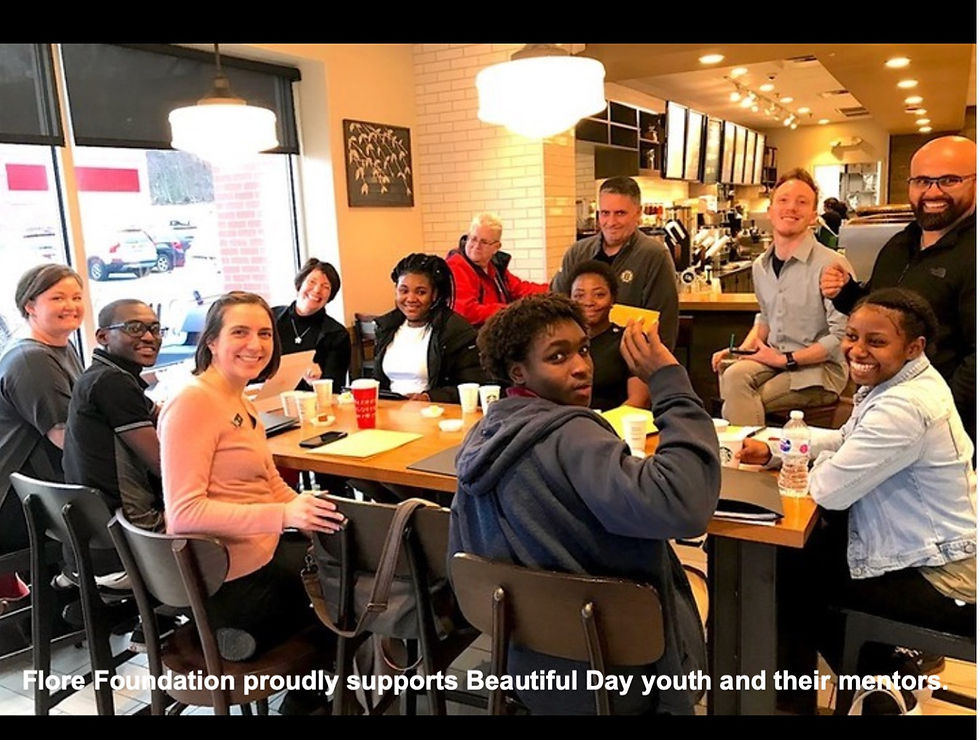Language Justice - A Human Right
- Veena
- Nov 30, 2021
- 2 min read
This fall I had the pleasure of following up with one of Flore Foundation’s grant recipients, Amer Al Fayadh. A few years ago, Amer started Language Beyond Boarders with the support of Church World Service in Lancaster, Pennsylvania where he was resettled with his family. He is a young, ambitious individual who is deeply committed to the community. With this in mind Amer created a program called Language Beyond Boarders to employ resettled refugees like him, who have a talent for linguistics. He trained them to be professional translators and interpreters. In late 2020, Amer incorporated Communication Essentials taking his organization to the next level. He attributes his ability to grow in part to his Flore Foundation grant, which allowed him to reach new customers.

My conversation with Amer led to a discussion about the necessity for “language justice” in many communities across the United States. What is language justice? It is the human right to communicate and be understood. In the United States, there is no official national language and Title VI of the Civil Rights Act of 1964 requires access to services that facilitate communication. Amer believes that while legal requirements exist, limited financial resources for professional interpretation are a barrier for many people to access public services such as health care and education. He highlights how in other cases individuals may not be able to understand government forms or rules; therefore, are at risk of noncompliance.
Amer’s spoke with me in depth about the hurdles resettled refugees face. Following the recent mass migration from Afghanistan, an uptick in conflict in Sudan and continued unrest in Syria and Myanmar, displacement is on the rise. While very few will be resettled in the near term, for those that find a permanent home we recognize the importance of employment in their path to a sustainable livelihood. Finding a job is not only a means to stability and safety, but also helps restore dignity stolen by the trauma incurred fleeing home. Those like Amer, a highly trained engineer, will be told their credentials are meaningless in their new country. Therefore, they are forced to develop an new skill. The list of challenges is large including realities of poor public transportation and local legal preference for existing citizens. People may need to quickly learn a second language, cultural norms and local business practices to compete for a position. For many refugees, these obstacles significantly limit job prospects.
Amer is an example of what is possible with a great deal of resilience and community support. He might argue that the experience of forced migration builds perseverance required to become an entrepreneur. Moreover, today his story continues as a business owner, advocate for language justice, mentor to others and active member of the Lancaster community.
As I reflect on this year, I am truly grateful for Amer, who shows me what it means to be a great global citizen – one who cares immensely about people and boldly creates avenues to improve communication.









I've also found some good websites to share:
https://www.gameape.com
http://www.gameapeblog.com
https://www.apemedia.io
https://www.sportsaper.com